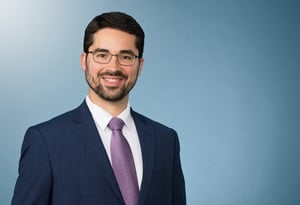Daniel Pulliam Speaks to Indiana Lawyer About Attorney-Client Privilege
Indiana Lawyer reported that the attorney-client privilege that gives business owners as well as individuals the confidence to speak freely with their lawyers is going to be reviewed by the U.S. Supreme Court on Jan. 9. For the first time in more than 40 years, according to the Association of Corporate Counsel, the nine justices are set to consider what test courts should use when trying to determine if a document or conversation between a lawyer and client is private.
The publication turned to business litigation partner Daniel Pulliam for insight on the matter.
Pulliam shared that, because privilege does not blanket all communications between clients and lawyers, he sees the case as potentially being beneficial.
“What’s really interesting about it is you’ve got an opportunity for the U.S. Supreme Court to provide some good guidance, if not clear rules, about what is or is not privileged and the rules that courts should go about looking at and using in determining whether a party has validly asserted a privilege for purposes of withholding information that would otherwise be discoverable,” he said.
Pulliam also noted that a gray area of privilege can appear when the intent of the communication is for “facilitating legal advice.” He explained that the lawyer may ask the client for the facts of the situation in order to then formulate a response regarding the legal considerations and consequences. A way to clarify that the memo or conversation is confidential would be to identify at the outset that the purpose of the interaction is to give legal advice. But attorneys and clients usually do not always make such declarations when they speak or trade emails.
“People don’t talk that way, people don’t write that way,” he stated. “People tend to be more informal about it. So it’s not always obvious that the communication is for the purpose of giving.”
The full article is available for Indiana Lawyer subscribers.


